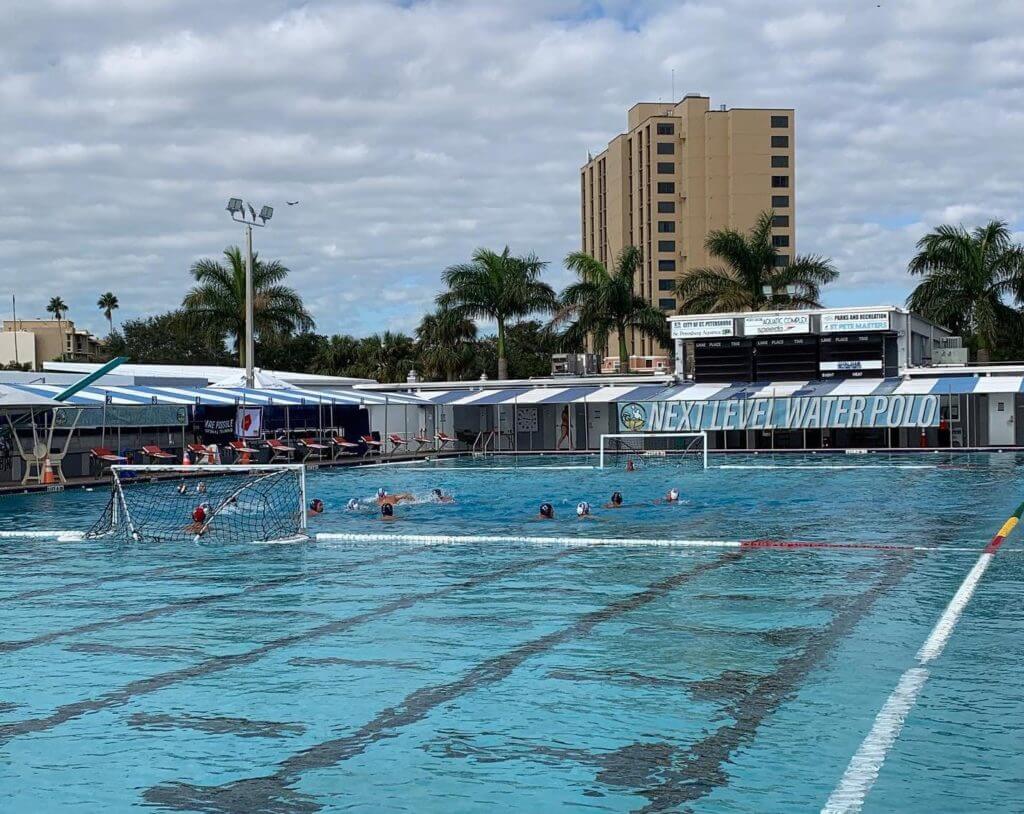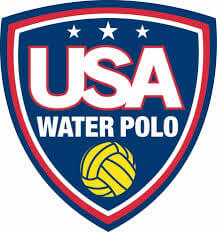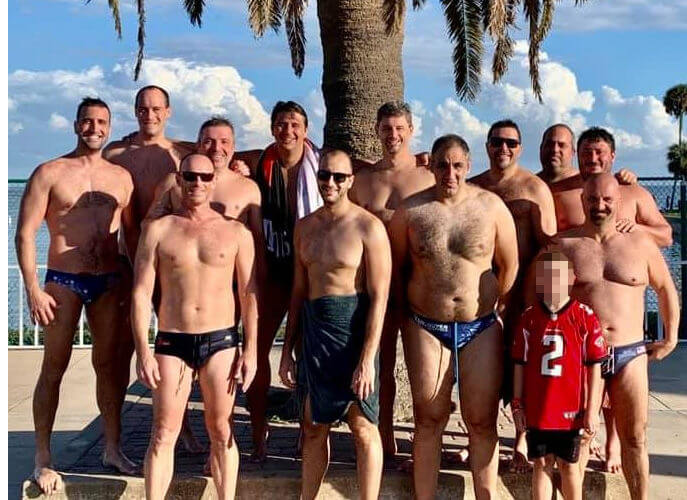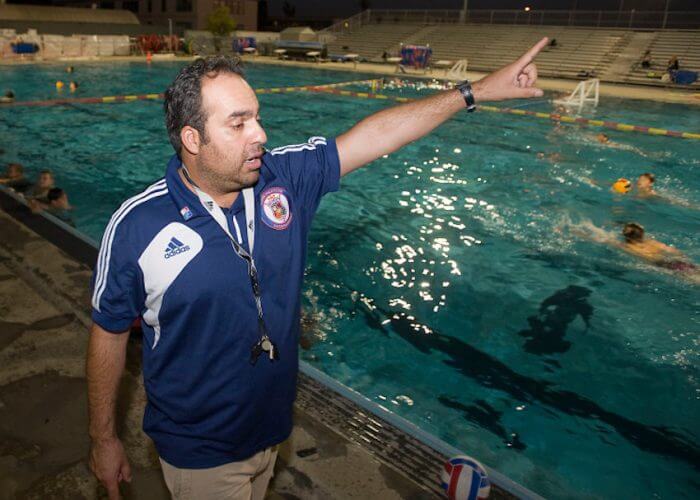USA Water Polo Grievance Raises Many Questions, Provides Few Answers

On Wednesday, December 9, USA Water Polo feted its 2020 Hall of Fame inductees in a virtual ceremony streamed on YouTube. It was a much-needed uplift for the sport in the U.S., which has been effectively brought to a standstill by the coronavirus pandemic.
[2020 USA Water Polo Hall of Fame Ceremony a Poignant Reminder of Better Times]
 But as Gavin Arroyo, Kelly Rulon, Gary Robinett, Elsie Windes and Bruce Wigo were being recognized in a pre-recorded ceremony, USAWP was embroiled in a far less festive affair, one that seems likely to perpetuate a black cloud hanging over the organization.
But as Gavin Arroyo, Kelly Rulon, Gary Robinett, Elsie Windes and Bruce Wigo were being recognized in a pre-recorded ceremony, USAWP was embroiled in a far less festive affair, one that seems likely to perpetuate a black cloud hanging over the organization.
In a Zoom call that same day and time, the national governing body for polo heard a grievance filed in November against Jacksonville Water Polo Club members and guest athletes for alleged rules infractions that reportedly included Bahram Hojreh, who is permanently ineligible to participate in any USAWP events. The hearing posed serious consequences for the accused, a number of whom have previously been lauded by the organization.
The juxtaposition serves as a reminder that the damaging allegations against Hojreh, formerly a respected age group coach in Southern California, cannot be wished or celebrated away—and threaten USA Water Polo’s viability.
An unsettling contrast
The near-simultaneity of the two USAWP events—a well-deserved public congratulations observance contrasted with possible punitive activity against its members—was of course unplanned, but its irony could not have been starker. The Hall of Fame induction celebrated noteworthy past accomplishments of five honorees, including Wigo’s decade-long tenure as the organization’s executive director. The grievance hearing was called by current USAWP CEO Chris Ramsey and focused on whether Hojreh, and others directly or indirectly associated with him, knowingly violated USAWP’s Rules Governing Conduct as well as the U.S. Center for SafeSport’s Code for The U.S. Olympic and Paralympic Movements.
The complaints centered on Hojreh’s presence at the Battle of the Bay 3 tournament organized for November 14–15 by NextLevel Water Polo, a club based in Tampa, Fla. A handful of masters’ players from California flew in to join the Jacksonville club’s entry at a tournament held in nearby St. Petersburg’s North Shore Aquatics Complex.
Hojreh, under criminal and civil indictment for alleged sexual abuse of former players, surprised many in the water polo world by choosing to bolt the currently pololess environs of SoCal for a tournament 2,100 miles away.
[Banned Coach Bahram Hojreh Seen at St. Pete Event; Prompts USA Water Polo Response]
His jaunt likely would have transpired without incident if Hojreh hadn’t been spotted in St. Petersburg—and if a partner at Manly, Stewart & Finaldi, lead plaintiff’s attorneys in the civil case, hadn’t circulated pictures of the accused sex offender fraternizing with members of the Jacksonville squad. Morgan Stewart, who released the images, intended not only to harass Hojreh, but to spotlight how USAWP enforces, or doesn’t enforce, its rules.
What’s it all about?
A primary piece of evidence against the defendants at Wednesday’s hearing was a photo posted on social media of eleven members of the squad, an unidentified minor and Hojreh—ostensibly following one of their matches at the tournament. This led to speculation that Hojreh, listed on the Center for SafeSport’s website as permanently ineligible for USAWP-sanctioned events, played in the tournament.
According to Josh Harrison, a Newport Beach-based attorney and a participant in Wednesday’s virtual hearing, two specific grievances were addressed:
- Did Hojreh participate in the tournament in any way that entailed him being listed on the roster, violating USAWP’s Failure to Remain in Compliance with USA Water Polo’s Background Screening Criteria?
- When media attention focused on Hojreh’s visit, did one or more of the participants interfere with a USAWP investigation by removing potentially incriminating photos from Facebook?
USAWP, which maintains a policy of not commenting on pending grievances out of respect for member privacy, declined comment.
If found guilty of either of these violations, the potential penalty is severe: a one-year suspension from all USAWP activity. This is significant as the organization—by virtue of its charter with the U.S. Olympic Committee—has a near-monopoly on all polo activity in America.

The Jacksonville Water Polo Club last month in St. Petersburg; Bahram Hojreh is in the back row on the right. Photo Courtesy: Manly, Stewart, Finaldi
Harrison, who represented one of the accused, did not believe these charges were proven to the satisfaction of the outside arbiter overseeing the hearing. According to testimony, it was apparent to Harrison that Hojreh did not at any time participate in tournament play; in fact, perhaps the biggest error by the Jacksonville club members was allowing its California visitor to “photo-bomb” a group shot—one that was subsequently circulated on Facebook.
The second charge, that participants were intentionally hiding evidence, was countered by testimony that USAWP was immediately in possession of the controversial images—they were turned over as soon as requested. On this charge Harrison was adamant that there was no basis for suggesting malfeasance.
Even if both grievances are ruled for the defendants, there is a separate charge—and hearing—regarding any violation of U.S. SafeSport Code. This may in fact prove more dangerous for the 12 USAWP members charged, the most prominent being Manny Torres, 2013 Bryan Weaver Male Master of the Year for the Southeast Zone and Jacksonville’s captain. Other long-time USAWP members are also under threat of suspension.
Examining the underlying issues, a question arises: Is USAWP vindictively pursuing a judgment, allowing the organization to burnish its case against Hojreh and dispel suggestions that it could not properly police sanctioned events?
Josh Harrison was emphatic: “When it comes to organizations like USA Water Polo, the Center for SafeSport and many other organizations in today’s society, the word is not ‘vindictive.’ The word, honestly, unfortunately, is ‘cowardice.’
“Everyone is afraid to not take a draconian and zero-tolerance policy towards mere accusations because they are afraid that they themselves will be accused unless they lead the charge….[They’re] so afraid of being accused of not caring enough about safety—the safety of athletes, the safety of children…they don’t want to be in the shoes of the person who’s being accused. It’s another consequence of this “guilty until proven innocent” genre….”
Rush to judgment against an alleged offender
It’s important to consider Hojreh’s situation, and wonder if there was a dubious urgency to bring judgment on the part of USAWP and the news media. For someone involved with polo over the past four decades, how surprising is it that—despite the allegations against him—the one-time SOPAC Zone board member would seek solace in community with fellow masters’ players?

Bahram Hojreh in 2013. Photo Courtesy: Rose Palmisano
There’s also the swift and strenuous enforcement of this grievance. Four weeks to schedule and hold a hearing is typical for USAWP, but parents who in the past raised allegations against Hojreh might question why the organization is taking such a strong position in this case. There are no clear guidelines, after all, for barring an individual sanctioned by the Center for SafeSport from a public event where admission is not charged.
When asked about what mechanisms were in place for Battle of the Bay 3 organizers to identify—and possibly exclude—Hojreh because he was ineligible to participate in USAWP events, a spokesperson for the organization declined comment. Given that this grievance—and the upcoming hearing on violations of SafeSport code—have yet to be decided, to draw specific conclusions at this time is speculation.
What is not in dispute: this is an issue that will not go away quietly. The overlap between what is typically the most uplifting event on the USAWP calendar with yet another reminder of one of the ugliest incidents in recent organization history demonstrates just how dangerous this entire situation is for USAWP’s present—and future.
With Chip Brenner



